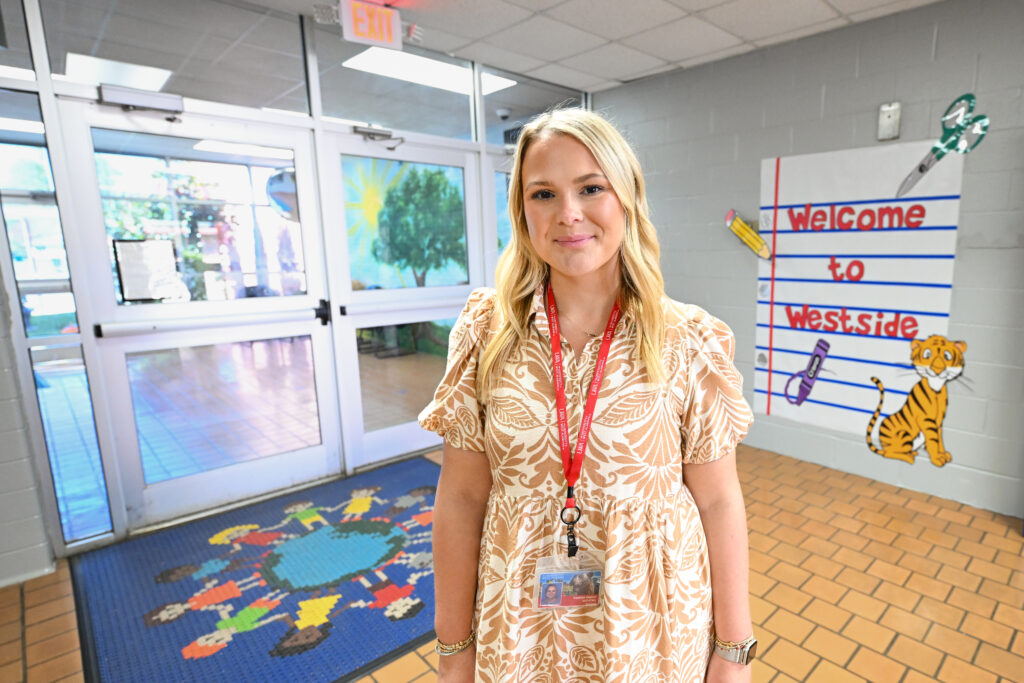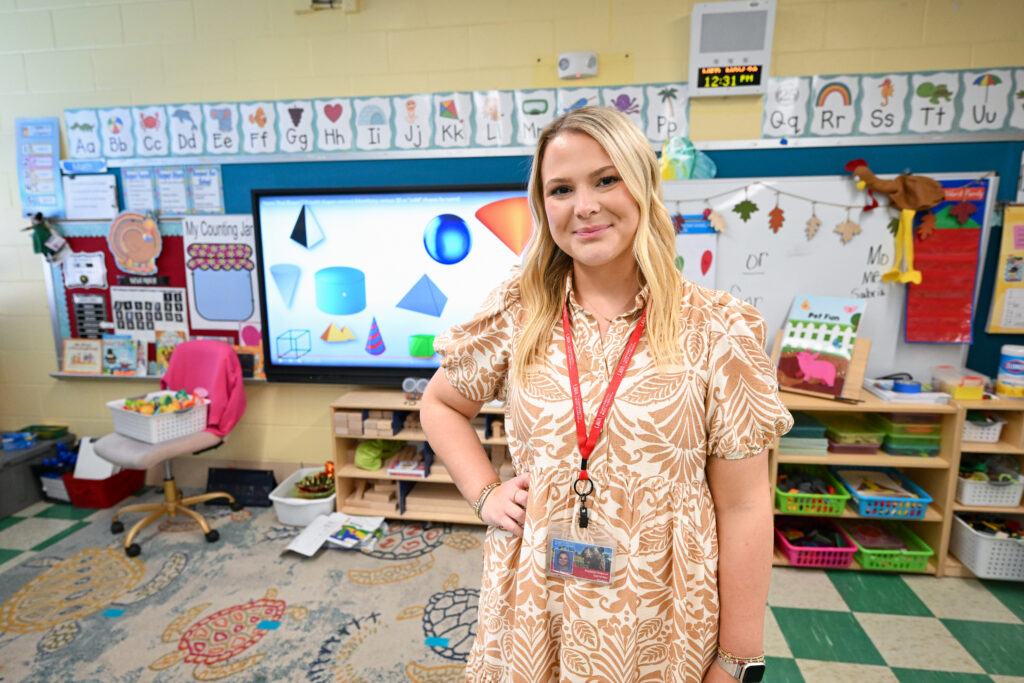
Story: Lisa Sollie | Photo: Cody Ingram
The first time Kayleigh Hagood toured the University of West Alabama campus, she felt an immediate connection. The campus reminded her of her small hometown of Brookwood, Alabama, with its close-knit community and welcoming atmosphere. As a first-generation college student, Hagood was looking for a place where she could carve out her own identity and explore who she could become.
Transferring from Shelton State Community College, Hagood arrived at UWA with excitement and apprehension. She admits that, initially, she was reserved. “I didn’t know anyone except for one friend I had grown up with,” she says, reflecting on those first few weeks. However, her mother encouraged her to join a sorority to help her meet people. Despite her reluctance, it was a decision that changed everything.
Hagood built campus connections with her peers and professors through Alpha Sigma Alpha Sorority. She says joining the sorority pushed her to get involved in several other campus organizations, including Student Support Services (SSS), which she describes as a great resource for first-generation college students. Her involvement in these groups led to leadership opportunities she had never imagined, including serving as a UWA ambassador and becoming a member of multiple honor societies, including Tri Alpha, Kappa Delta Pi, Order of Omega, Omega Delta Kappa, and the Blue Key Honor Society.
Academically, Hagood has thrived at UWA, especially within the university’s nationally-acclaimed education program. “I truly believe it is the best in the state,” she says, noting that her older sister and aunt both graduated from UWA with an education degree. “Our professors make sure we grasp the material and gain plenty of practical, hands-on experience.”
Her passion for teaching shines through in her fieldwork, showing firsthand how well-prepared UWA students are to step into the classroom. “At Westside Elementary and U.S. Jones Elementary in Demopolis, where I completed my placements, the teachers would often ask me where I had learned to do some of the things I was incorporating into my lessons,” she recalls. “It was incredibly rewarding to know that the preparation I was receiving at UWA was having a real impact.”

Despite the perceived challenges she and other future educators often hear when considering a career in education—such as “low pay and high stress”—Hagood’s passion for teaching is deeply rooted in her childhood experiences. She recalls how her teachers were a light and advocate for her and her peers, and that sense of support has shaped her unwavering commitment to the profession. “Teaching isn’t about getting rich, she says. “It’s about making a difference in a student’s life.”
Hagood’s parents never attended college, so she is deeply appreciative of the sacrifices they made to provide her with the opportunities she’s had while at UWA. Inspired by their example, she’s committed to paying it forward in her own classroom. Whether it’s quietly contributing funds so students can attend a field trip, providing a snack for children who need one, or offering care and support to students who might not receive it at home, Hagood’s goal is to make a positive impact on her students’ lives.
“One thing that will always stay with me is how my parents went without so their four kids could have everything we needed,” Hagood reflects. This experience informs her teaching philosophy, rooted in Maslow’s Hierarchy of Needs, which states that before a child can succeed academically, their basic developmental and psychological needs must first be met.
As she prepares to graduate and step into her role as an educator, Hagood acknowledges that graduating in December means she’ll likely inherit a class from a teacher who left mid-year or take over for someone on maternity leave or facing health issues.
“I know I’ll likely have to wait until next fall before I’m in my own classroom, but I trust the process and God’s timing. Helping students grow,” she says, “will make the wait and hard work worthwhile.”